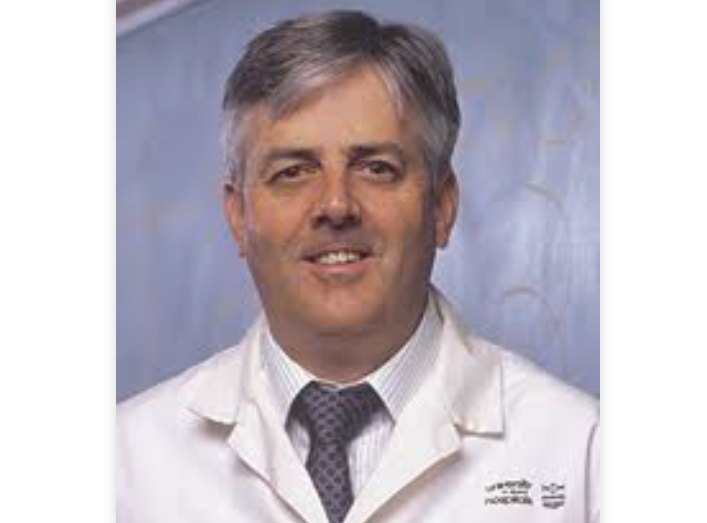University of Alberta and Global Scientific Community Mourn the Passing of Dr. Gary Lopaschuk, Renowned Cardiac Scientist and Esteemed Professor, Whose Groundbreaking Research in Cardiac Metabolism Leaves a Lasting Legacy
Edmonton, Alberta – The University of Alberta and the international scientific community are mourning the loss of Dr. Gary Lopaschuk, a distinguished researcher, professor, and pioneer in the field of cardiac metabolism. Dr. Lopaschuk’s passing has left a profound impact on his colleagues, students, and the many individuals whose lives were touched by his groundbreaking work in cardiovascular medicine.
For decades, Dr. Lopaschuk was at the forefront of research into heart metabolism, focusing on how energy production in the heart affects cardiovascular health and disease. His extensive body of work significantly advanced the understanding of how metabolic processes contribute to heart failure, ischemic heart disease, and other cardiac conditions. His pioneering research paved the way for innovative treatment strategies aimed at improving heart function in patients suffering from metabolic disorders and cardiovascular diseases.
A Legacy of Excellence in Cardiac Metabolism Research
Dr. Lopaschuk was widely regarded as a world leader in cardiac metabolism, with his research helping to shape the direction of the field for future generations. He dedicated much of his career to investigating how the heart utilizes different fuels, particularly fatty acids and glucose, and how metabolic dysfunction can lead to severe heart conditions. His work was instrumental in developing therapeutic approaches that optimize energy use in the heart, which has had significant implications for treating heart disease and diabetes-related cardiovascular complications.
His influential studies, published in top-tier medical and scientific journals, earned him widespread recognition and respect from researchers and clinicians worldwide. His contributions to understanding the intricate relationship between metabolism and heart function have provided critical insights that continue to inform medical advancements in treating cardiovascular diseases.
A Passionate Educator and Mentor
Beyond his contributions to research, Dr. Lopaschuk was a dedicated educator who took great pride in mentoring students, postdoctoral fellows, and young researchers. As a professor at the University of Alberta, he was deeply committed to nurturing the next generation of scientists, encouraging curiosity, critical thinking, and innovation in cardiovascular research.
Many of his former students and colleagues have spoken about his unwavering support, kindness, and generosity in sharing his knowledge and expertise. His mentorship extended beyond the classroom and laboratory, as he continuously advocated for young researchers, helping them navigate the challenges of academia and scientific discovery. His legacy as an educator is reflected in the numerous researchers he trained, many of whom have gone on to make significant contributions to the field.
A Lasting Impact on Cardiovascular Medicine
Dr. Lopaschuk’s work has left an indelible mark on the field of cardiovascular medicine. His research has been widely cited and used as the foundation for developing novel therapies aimed at improving heart function and preventing heart failure. His contributions were recognized with numerous prestigious awards and honors, cementing his status as a leader in his field.
Throughout his career, he collaborated with scientists and clinicians worldwide, ensuring that his research had a direct impact on patient care. His work extended beyond the lab, influencing how doctors approach metabolic interventions for heart disease and guiding pharmaceutical developments in cardiac health.
Remembering a Scientific Visionary
As news of Dr. Lopaschuk’s passing spreads, tributes have poured in from colleagues, students, and fellow researchers, all of whom recognize the immense contributions he made to the field of cardiovascular science.
The University of Alberta has expressed its deep sorrow over the loss of one of its most esteemed faculty members. In a statement, the university acknowledged his invaluable contributions to medical research and education, emphasizing the far-reaching impact of his work.
“Dr. Gary Lopaschuk was not just an exceptional scientist; he was a mentor, a leader, and a compassionate educator who dedicated his life to advancing our understanding of heart metabolism. His legacy will continue to inspire generations of researchers and medical professionals,” the statement read.
A Life Dedicated to Scientific Discovery
Dr. Lopaschuk’s passing is a significant loss for the global scientific community, but his research and teachings will continue to shape the future of cardiovascular medicine. His contributions to cardiac metabolism have laid the foundation for ongoing advancements in the field, ensuring that his work will benefit patients for years to come.
He will be remembered not only for his scientific brilliance but also for his kindness, mentorship, and dedication to making a difference in the lives of others. His impact on cardiovascular research, education, and patient care is immeasurable, and his legacy will live on in the many researchers and healthcare professionals who were inspired by his work.
The University of Alberta, his colleagues, and the broader scientific community will continue to honor his memory by building upon the knowledge and discoveries he dedicated his life to pursuing.

